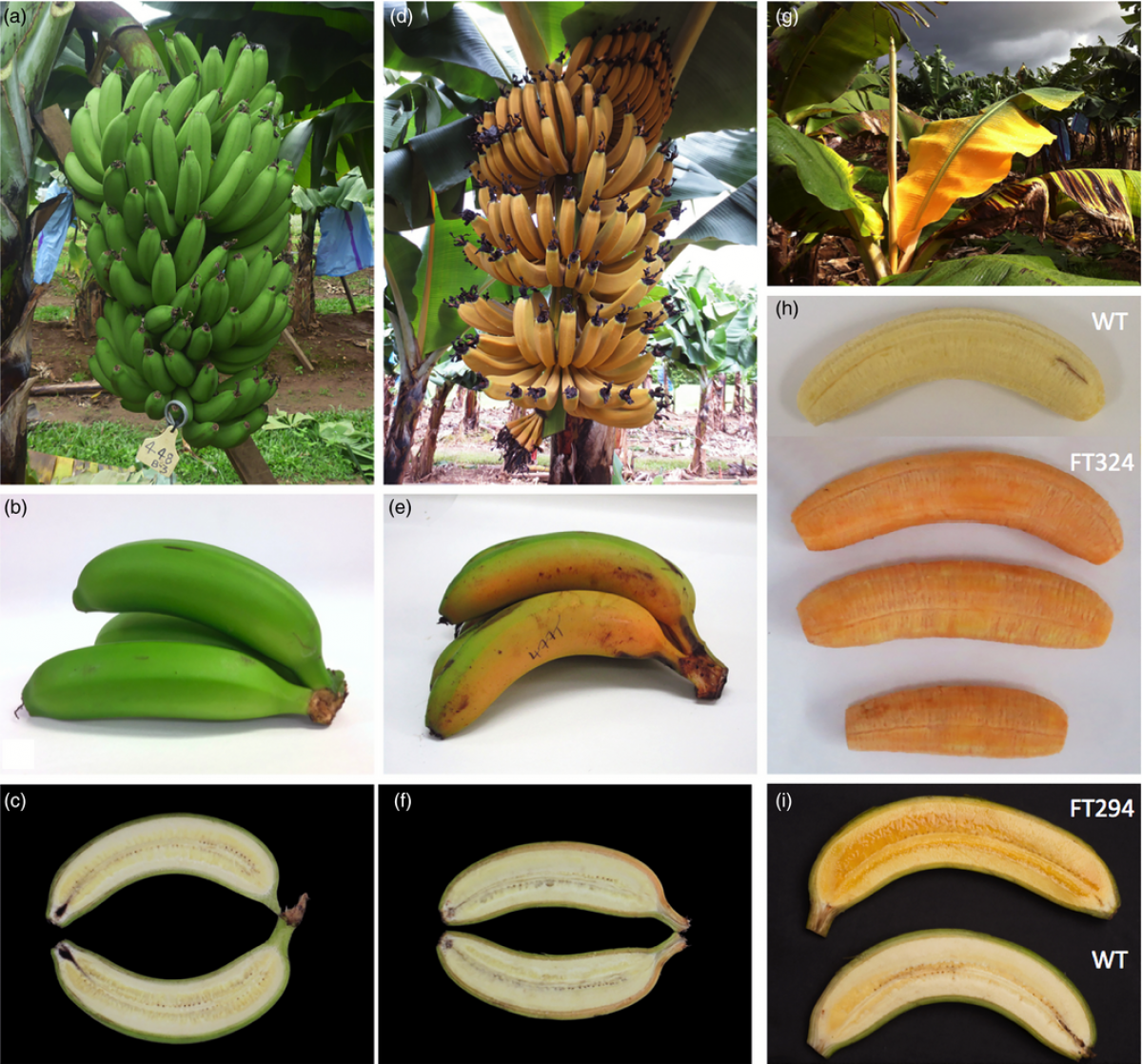Scientists in Australia have created golden-orange-fleshed bananas rich in pro-vitamin A that could save the lives of hundreds of thousands of children who die from a deficiency of this vitamin every year.
The "biofortified" bananas were developed by taking genes from a species of banana from Papua New Guinea, which is high in provitamin A but only produces small bunches, and combined it with that of a Cavendish banana, the high-yielding species most people are familiar with. Provitamin A is converted by the body into vitamin A.
Researchers from Queensland University of Technology have been developing the bananas over the last 10 years thanks to $7.6 million funding from the Bill & Melinda Gates Foundation.

Their latest research findings are published in Wiley's Plant Biotechnology Journal. In the study, the team presented results from their proof of concept field trial in Australia, in which they had aimed to achieve a specific level of provitamin A within the fruits produced. They found they had exceeded the target with one line of bananas more than doubling it.
Professor James Dale, who led the research, said: "Over the years, we've been able to develop a banana that has achieved excellent provitamin A levels, hence the golden-orange rather than cream-coloured flesh.
"Achieving these scientific results along with their publication, is a major milestone in our quest to deliver a more nutritional diet to some of the poorest subsistence communities in Africa. Our science works. We tried and tested hundreds of different genetic variations here in our lab and in field trials in Queensland until we got the best results.
"These elite genes have been sent to Uganda in test tubes where they have been inserted into Ugandan bananas for field trials there."

The next stage will be to undertake field trials in Uganda to see if the results are replicated. Cooked bananas is a staple food in rural parts of the country, so growing these provitamin A-rich bananas will help people meet the dietary requirement.
It is estimated up to 750,000 children die from a deficiency in vitamin A every year, with hundreds of thousands more going blind as a result. Researchers said that while there have been "significant inroads into reducing" vitamin A deficiency in children aged between six months and five years worldwide, its prevalence in Uganda has increased, increasing from 20 percent in 2006 to 38 percent in 2011.
"The East African Highland cooking banana is an excellent source of starch. It is harvested green then chopped and steamed," Dale said. "But it has low levels of micronutrients, particularly pro-vitamin A and iron. The consequences of vitamin A deficiency are severe."
Researchers hope their bananas will be grown by Ugandan farmers by 2021.
Uncommon Knowledge
Newsweek is committed to challenging conventional wisdom and finding connections in the search for common ground.
Newsweek is committed to challenging conventional wisdom and finding connections in the search for common ground.
About the writer
Hannah Osborne is Nesweek's Science Editor, based in London, UK. Hannah joined Newsweek in 2017 from IBTimes UK. She is ... Read more





